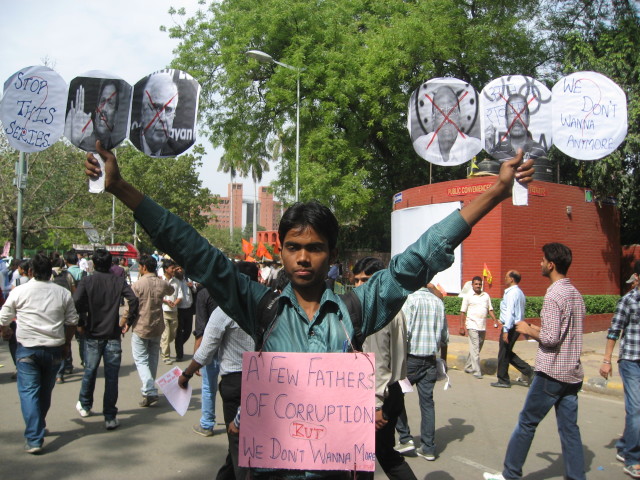The presence of politics on University Campuses always feels a little strange for those of us studying in Mumbai. A city firmly grounded in commerce, the idealism and commitment that is essential for politics to flourish was absent from college campuses in the city, and hence the acronyms like ABVP and NSUI were unknown to us.

As we grew older and met those who had studied elsewhere, we were made aware of the concept of ‘student’ unions affiliated to political parties. Stories of rampant factionalism, political violence, agitations, strikes – a far cry from the gentle environment of Mumbai’s colleges, where the only thing that could get students agitated was being ‘black-listed’ for low attendance.
The events of the last two weeks brought our nonchalance about such matters into sharp focus, as stories and visuals emerged from the campus of the prestigious Jawaharlal Nehru University. At the time of writing, nothing about the sordid affair is very clear. Who shouted slogans? What was being said? What were the motivations of the opposing parties involved? Somehow, due in part to inept handling of the matter, it went from being a trivial case of unruly or misguided students being stupid to a matter on which the fundamental right to freedom of expression stood threatened – or, if you looked at it from the other side, where the existence of the Indian state was being threatened.
How did things come to this pass?
To understand that, we need to look at the function that was supposed to be served by elected posts on campuses as against the function being served currently.
By definition, Universities tend to have a large student population, and are often residential rather than day-colleges. In such an environment where a large number of youth are thrown together, a measure of autonomy becomes essential, and thus the formation of committees to manage student affairs, representatives from the student body itself to take decisions on matters affecting their interests – all these were by definition laudable objectives. Having experienced the flip side – an environment where students had virtually no say in any aspect of campus life, I can readily state that it is far better to have elected, student-driven management of student affairs than faculty control and supervision of every aspect of campus life.
Now the moment elections enter the picture, factionalism is inevitable. It is human nature to create divisions and align with one or the other in ways that lead to conflict. This is true even on the relatively apolitical campuses of private colleges. But what vitiates the atmosphere beyond control is the entrance of entrenched political parties, bringing ideology and money into contests that should be about issues.
After all, student elections are about students. The vote should be about who can perform the best job of protecting student rights, getting better facilities from the college management and the nitty-gritties like hostel, canteen and library-related issues. But somewhere, a bunch of greedy politicians saw an opportunity to bring voters into the fold at a young age, to use the energy and idealism of youth to mould them into party workers, and from there began the slippery slope that has led to the caste / religion / region / ideological divides of today.
And somewhere in the midst of all the chaos, I find myself left asking the question:
Between the Congress Union, the Leftist Union, the BJP Union, the Muslim Students Union, and now the AAP Union – who’s actually studying at the Universities?































